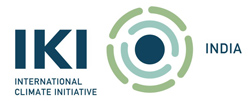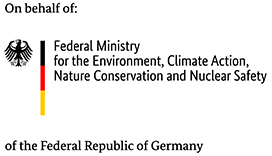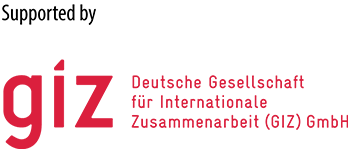Energy Efficient Cooling
January-March | 2025Bilateral
Mitigation of Climate Change
Link To Project: Click Here
FEED 2025, held on 30–31 January 2025 by AEEE, brought together stakeholders to accelerate India’s energy transition through data-driven innovation, finance, and technology. As a knowledge partner, the EE-Cool project highlighted District Cooling Systems (DCS) as a key solution for urban energy efficiency and climate resilience. Furthering this agenda, the project, along with BEE and Tabreed India, hosted a regional workshop in Mumbai on 4 March 2025, focusing on DCS potential, policy frameworks, and collaborative networks. With Maharashtra’s leadership through HAPs and MCAP, DCS can reduce cooling energy demand by up to 50%, advancing both national and global climate goals.
Project Updates
FEED 2025: Driving Decarbonisation and Energy Efficiency
The Forum on Energy Efficiency & Decarbonisation (FEED 2025) took place on 30-31 January 2025, convening key stakeholders from industry, government, and civil society to advance India’s energy transition. Organised by the Alliance for an Energy Efficient Economy (AEEE), FEED 2025 focused on data-driven innovation, financial mechanisms, technology advancements, and green job creation to power India’s sustainable future.
As a knowledge partner, the EE-Cool project contributed to discussions on District Cooling Systems (DCS), emphasizing their role in enhancing urban sustainability, energy efficiency, and climate resilience. The session highlighted the importance of integrating DCS into India’s urban infrastructure to drive decarbonisation and meet the country’s climate goals.
Regional Workshop on District Cooling in Mumbai
To reinforce efforts on sustainable cooling, the EE-Cool project, in collaboration with the Bureau of Energy Efficiency (BEE) and Tabreed India, hosted the third Regional Workshop on ‘Cooling India’s Cities’ in Mumbai on 4 March 2025. The event addressed the rising demand for cooling in one of India’s most heatwave-affected states, where energy-intensive cooling needs are expected to grow by 15-20% annually.
The workshop brought together over 80 stakeholders from government, industry, and academia to discuss:
- The Potential of District Cooling: Case studies showcased the feasibility of DCS in greenfield and brownfield projects.
- Policy and Practice Ecosystems: regulatory frameworks, challenges, and long-term sustainable cooling strategies were addressed.
- Collaborative Networks: Strengthening public-private partnerships to scale innovation in cooling infrastructure.
Maharashtra’s Heat Action Plans (HAPs) and the Mumbai Climate Action Plan (MCAP) position the state as a leader in energy-efficient, low-carbon cooling solutions, with DCS potentially reducing energy demand by up to 50%.
The event was attended by Ms. Ilka Hirt, Deputy Director General, Directorate International Policy at BMUV, who underscored the global significance of sustainable cooling:
“The transition to sustainable cooling is not just a national priority but a global imperative. Through the International Climate Initiative, we are committed to supporting India in adopting energy-efficient cooling solutions that align with global climate goals.”
Copyright © 2026 All rights reserved




